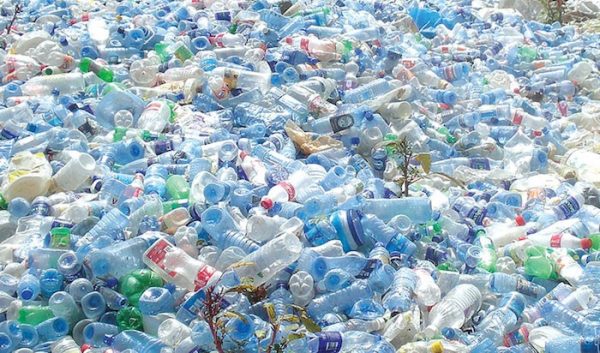By Mercy Omoike and Vivian Ihechu
Over the years, the use of plastics has become common place in the lives of humans.
From manufacturing to storage to cooking and other diverse areas, plastics are used in one way or the other.
Plastics are found in educational materials, cooking utensils, on the international space station, in medical equipment, and indeed every job and livelihood on the earth.
However, its single use convenience has posed challenges to the ecosystem, of which is now affecting humanity.
According to the United Nations (UN), decades of overuse and a surge in short-lived, single-use plastics, has led to a global, environmental catastrophe.
“Up to 12 million tonnes of plastics are being swept into the oceans annually and gyres, or so-called ‘islands of plastic’, are blossoming.
“While most plastics are expected to remain intact for decades or centuries after use, those that do erode end up as micro-plastics, consumed by fish and other marine wildlife, quickly making their way into the global food chain.’’
It is estimated that 1,000,000 plastic bottles are bought every minute and 500,000,000,000 plastic bags are used each year.
About 13,000,000 tonnes of plastics leak into the ocean each year with 100,000 marine animals being killed by plastics annually.
Scientists say it takes 100 to 500 years or even more, for plastic to degrade in the environment and even after that, particles of it exist, of which can mostly be harmful.
Also, 90 per cent of bottled water are found to contain plastic particles with 83 per cent of tap water having also been found to contain plastic particles
Recognising the great danger these portend, the UN General Assembly included the issue of plastic pollution as a priority during the 73rd Session.
María Fernanda Espinosa Garcés, President of the 73rd session assures that the UN, working together with member states, UN agencies, civil society groups, and the private sector, will support efforts that will help to reduce plastic consumption, raise awareness, and support efforts to find global, regional and local solutions.
A major private sector that has remained committed to the fight against plastic pollution is Nestlé, which recognises that packaging helps protect food and beverages, ensures product quality and safety, communicates nutritional information and prevents food waste.
However, according to it, these essential requirements should not come at the expense of the planet and that is why they are continually developing more sustainable packaging and committed to reducing waste from packaging.
At a virtual Nestlé Media Training for Journalists on Thursday, an Environmental Sustainability professional, Dr Eugene Itua harped on the increasing dangers of plastic pollution and the need to curb single use plastic.
Itua, in a lecture on the topic: “Environmental Stewardship: Exploring the impact of Plastic Pollution”, emphasises that the menace of plastic pollution globally is overwhelming.
“Plastic is an incredibly useful material but made from toxic compounds known to cause harm to the environment and human health.
“Plastic pollution is the accumulation of plastic objects and particles in the earth’s environment that causes great complexities for all species on the planet.
“Plastic pollution occurs when plastics gather in an area and begin to negatively impact on the natural environment, creating problems for plants, wildlife and humans.’’
He highlights that annually eight million tonnes of plastic waste escape into the oceans from coastal nations, making it the equivalent of setting five garbage bags full of trash on every foot of coastline around the world, while outlining the consequences of plastic pollution prevalence on the environment and especially, on human health.
“The World Health Organisation (WHO) in 2018 published a research that revealed the presence of microplastics in 50 per cent of bottled water.
“The test revealed that only 17 bottles were free of plastic out of 259 examined.
“The average human consumes about 70,000 microplastics annually and plastic pollution has doubled over the past 50 years.
“Since 1950s around 8.3 billion tons of plastics have been produced worldwide, and a million plastic bottles are bought globally every minute.
“Plastic production has increased exponentially from 2.3 million tonnes in 1950 to 448 million tonnes by 2015, with production expected to double by 2050.
“It takes plastic about 400 to 600 years to decompose hence the importance in curbing global plastic pollution,” Itua says.
He goes further to specifically highlight the adverse effects of plastic pollution, while rating Nigeria as number two in plastic imports in Africa.
“Exposure to plastic pollution can result in a variety of adverse effect on human health. It can cause choking in toddlers and severe health outcomes like cancers, birth defects and impaired immunity.
“There has been links between plastic pollution and the growing health problems in today’s generation.
“Frequent complications such as human cardiovascular diseases, respiratory disorders, cancer, diabetes, chronic inflammation and other immune diseases are also attributed to plastic pollution,’’ he says.
According to Itua, Nigeria is one of the largest consumers of plastics in Africa, with its plastic production set to increase.
“Between 1996 and 2017, about 20 million tonnes of primary plastics and products were imported into the country, making Nigeria the second largest importer of plastic in Africa which accounts for 17 per cent of total plastic consumption in the continent.
“That is why it has become pertinent to end single use plastic, encourage sorting and recycling activities, as well as educate people on the dangers of plastic pollution,” Itua says.
Victoria Uwadoka, Corporate Communications and Public Affairs Manager, Nestlé Nigeria, says there is need to raise consciousness of the public about the role that all have to play in guarding against plastic pollution.
“I will advise Nigerians to be mindful of how they dispose plastics and wastes in order not to end up constituting a problem to the society in the nearest future.
“We should desist
This is because reducing exposure to toxicants from plastic wastes will increase the chances of having a clean environment and healthy society.
NANFeatures


